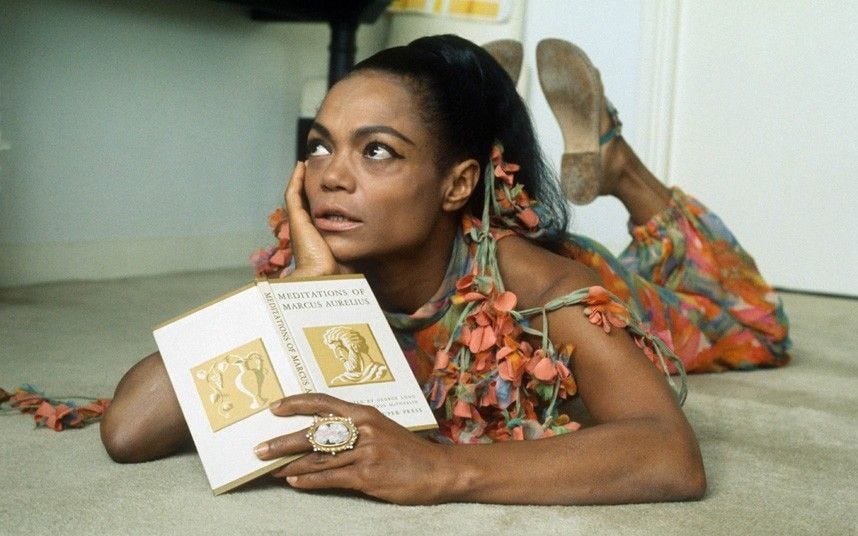The other day, I used my lunch break to pick up two reserves at the Greenpoint branch of the Brooklyn Public Library: Mobility, by the wonderful Lydia Kiesling, and On kissing, tickling, and being bored: psychoanalytic essays on the unexamined life, by Adam Phillips. Illuminated by white-cold plate glass, the bustling open-floor room teemed with excited children and their bleary caregivers, teens hunched before computer screens, and adults taking advantage of the free books, warmth, and community programming that the library offers. Though I’ve been in retreat lately, preferring reading to most other people, I felt cheered by the continued existence of this utopian place, which despite everything hasn’t been taken from us—not yet, anyway1.
For a long time, I believed that books were a source of comfort and escape for me. But since I’ve been replacing hookups, parties, and various *events* with nights reading in bed, wrapped in my great-grandfather’s plaid bathrobe—the only physical remnant of him in my possession, besides a tablespoon of ashes, even though he loved me the most until nearly the end of his distended century on this earth—I’ve begun to wonder if this is actually true. While a book is, if nothing else, a reprieve from doomscrolling past CCTV footage of Palestinian children being murdered during a supposed ceasefire, reading hasn’t been making me feel comforted or escaped. The good spirits stoked by a visit to my local library aside, books have brought their own emotional weight to bear in 2023.
Perhaps I must blame what I’ve chosen to read. Cormac McCarthy’s The Passenger and Stella Maris, both of which came out in late 2022, a few months before the great author’s death, merge into what I can only conceive of as an elegy for human life on this planet. Turning the ultimate page of Maris, I got the sickening feeling that it was I who was being finished; I’m usually reassured by my own insignificance, but McCarthy’s circumscription of civilization by fire, one kindled by god and then supersized by us2, was a juggernaut too vast for reckoning and too tragic for catharsis. A fairly staunch non-reader of poetry, I delighted in Kay Gabriel’s A Queen in Bucks County, but her sensuous epistolary left an aftertaste of mourning: Everybody gets to be sexy, like everybody gets to die. As preparation for my third novel, Casanova 20: Or, Hot World3, I read lots about mostly white gay/MSM life in the 20th century, like Tearoom Trade: Impersonal Sex in Public Places, by Laud Humphreys; The Sexual Outlaw, by John Rechy4 (my self-loathing total top king!); In My Room and I’m Going Out Tonight, both by Guillame Dustan (thee French autofiction icon); Do Everything in the Dark, by Gary Indiana; About Ed, by Robert Glück; not to mention White, Guibert, Hollinghurst, etc. Rather than balance the resonant beauty to be found in these works, their depictions of physical suffering, direct and bureaucratic violence, and loneliness almost overwhelm it. Only the other evening, Andrew Holleran’s The Beauty of Men—a novel about a middle-aged gay man who leaves his community in New York City at the height of the AIDS crisis to care for his quadriplegic mother back home in Florida—made me cry so much I had to put down the book, lie on my yoga mat, and stare at the ceiling for a while.
Maybe books don’t always provide comfort or escape, but as my sadness reminds me, these sensations aren’t the only reason for doing anything, including reading. Anyway, reprieve is not the same thing as pleasure. And like I said, the library hasn’t been taken from us yet. I intend to keep using and supporting it when I can.
Better luck next year, right? Here’s what I’ll be reading to ring it in:
Blind Owl, by Sadegh Hedayat
Invention of Women: Making an African Sense of Western Gender Discourses, by Oyèrónkẹ́ Oyěwùmí
Running the Gauntlet, by Jim Ward
Supplication, by Nour Abi-Nakhoul5
Psycho Paths: Tracking the Serial Killer Through Contemporary American Film and Fiction, by Phillip Simpson
Fearing the Black Body: The Racial Origins of Fat Phobia, by Sabrina Strings
Man and His Symbols, Carl Jung
What’s on your list for January 2024? Share in the comments if you want.
Find me on Twitter and Instagram. Get my second novel, X, right here. Learn more about the history of this newsletter here.
This was a weekday, so the library was open. Until last month, it was open on weekends, too, but recent budget cuts from our mercenary mayor mean many (all?) branches no longer offer Sunday service.
Interpret “us” here most judiciously, s’il vous plait.
More on this to come soon, hopefully.
Rechy (who, at 92 years old, is still alive and hopefully well!), a Mexican-American author, is one of the exceptions here.
ARC brag!





i ordered a few books and am excited to get stuck into them including The Book of Naseeb by Khaled Nurul Hakim. Excited for Byung Chul Han's next work The Crisis of Narration. Also excited to read Las Malas Camila Sosa Villada. So many more! But these are ones that popped out :)
the cover photo excited me — my first copy of “meditations” is arriving in the mail today